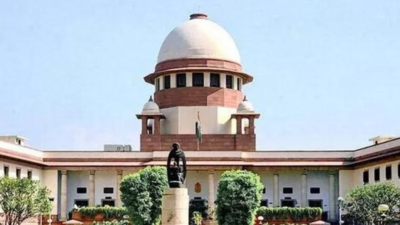The Supreme Court has decided to reevaluate the validity of its March 2018 ruling that imposed a six-month expiration period on stay orders, aiming to streamline prolonged trial proceedings. The court expressed concerns that an automatic vacation of stay orders after six months might lead to “serious miscarriage of justice” in certain situations.
Rakesh Dwivedi, a senior advocate representing the Allahabad High Court Bar Association, contended that the initial 2018 judgment, led by Justice Adarsh Goel, primarily addressed whether the order on framing of charges was subject to challenge before the High Court. He emphasized that the debate on whether a time limit should be imposed on stay orders was not thoroughly discussed during the proceedings.
A bench comprising Chief Justice DY Chandrachud and Justices J B Pardiwala and Manoj Misra argued that when a high court grants a stay in a criminal or civil case, automatic vacation should not be mandated. They highlighted that delays are not always the fault of the parties involved and can be attributed to various reasons, such as cases not being listed before the courts.
Expressing reservations, the CJI-led bench questioned the directive stating that a stay order’s duration should not exceed six months unless explicitly extended by the High Court. While acknowledging that indefinite stays can cause significant delays, the bench argued that the principle of automatic vacation after six months could lead to serious miscarriages of justice. Considering the previous judgment was issued by a three-judge bench, the bench proposed referring the correctness of the ruling to a five-judge bench.
The 2018 judgment, authored by Justices Adarsh Goel and Navin Sinha, sought to address delays in court trials caused by indefinite stay orders. It mandated that in all pending cases, stays against civil or criminal trial proceedings would automatically end after six months unless extended by a specific order. The Supreme Court emphasized that such extensions must be supported by a speaking order demonstrating the exceptional nature of the case, where continuing the stay was deemed more crucial than finalizing the trial.
